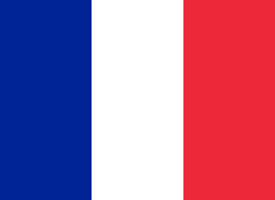The people: Friendly, welcoming, warm hosts, handsome, mostly dark, but some are fair. There is a certain Roman distrust towards the gypsies, whom they see as lazy, dishonest, beggars, and sometimes thieves. Often speak French or Russian. Starting to speak English in the larger towns.
What you see: Like stepping back 100 years in time. Horses and wagons are more common in the villages than cars. Horses and cows are chained to the side of the road or in a field to graze. On the village roads, you see horses, cows, pigs, donkeys, geese, chicken, sheep. Labor is manual – people are bent over working in the fields. Benches line the village streets – neighbors often sit on the benches to talk to each other. Many of the houses in the southern regions have either the three arches or Roman-style columns. Reed rooves in the Delta. Houses painted in contrasting colors, gates match color of houses. Each house has a garden, farm animals, well, and outhouse. Cherry trees. Storks.
Music: Gypsy music very prevalent, even with Romans. Can still find American and English music, but to a lesser extent than in other countries we’ve been to. When a singer on TV sing the traditional music, there is almost no movement of the body, a possible swaying from time to time or a movement of the index finger.
Environment: Clean, roads are free of litter. Exception is banks of Delta, where trash is washed up from people throwing trash into the river.
TV: Cable is so cheap that even houses that don’t have running water (everyone in the countryside) have cable (40 channels). Romanian talk show and game shows. MTV, VH1, Seinfeld, Euronews, French channels. Mostly subtitled, not dubbed.
Fashion: In the countryside, women wear knee-length skirts with leggings and sandals underneath; headscarf if married, and no wedding ring. Men wear tall Russian-style hats and boots. In the city, no headscarves, but wear wedding rings. Depending on city, mix between street clothing and skirts and scarves.
Transportation: Horse and wagon, then walking and bike. Cars are over 50% Dacia.
Customs: The week after Easter, family goes to cemetery to have a picnic with their dead family members, to share their food. Easter – painted red eggs and cinnamon cake. Men do not shake women’s hands. If it is offered, they kiss it.
Economics: Average of 75 Euros/month salary. Everyone says how France is good and how Romania is bad because it’s poor. Many people go to other parts of the country or even to other countries to find work. Main industries are agriculture and construction. Gypsies are said to not like working, but engage mostly in illegal activities or buying goods for low prices and reselling them.
Political Climate: Everyone talks about how corrupt the government and business is.
Social Structure: Gypsies either very rich or extremely poor. Many Romans seems to be more in the middle. Many children, especially boys, are unable to finish school because they have to work.
Food: Mititei (rolled sausage made of pork, beef, and herbs, said to be better when rolled under the arms to add flavor!)
Bread – major staple
Rakija (brandy), though less strong than in Serbia
Tutti Fruiti – the national soda that tastes like carbonated juice
Soups – fish soup in delta area
Grilled fish, served whole, to be eaten with the hands; staple in the delta, but also eaten elsewhere
Fish in delta region – often served with a strong garlic sauce
Omelets – for breakfast
Prunes – prune stew, jam, cakes, eaten off the tree
Milk is almost impossible to buy in the stores outside of the large cities – everyone has their own cow!


